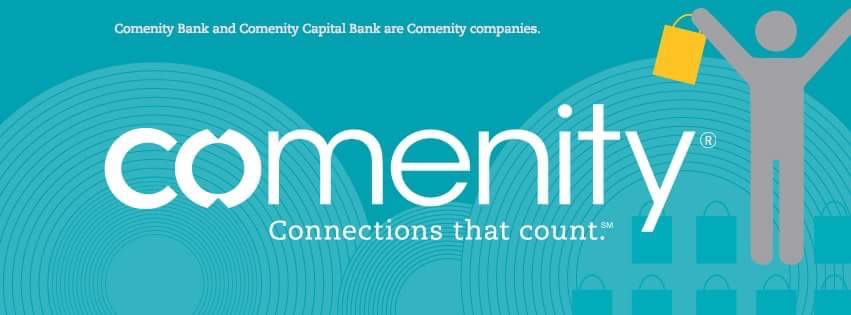You’ve just received that dreaded text alert from your bank: your checking account has dipped below zero. A rush of questions flood your mind, and perhaps the most urgent among them is, “Will this overdraft affect my credit score?”

You’re not alone. Overdrafts can happen to the best of us, but understanding their impact on credit scores can feel like solving a complicated puzzle. This article will break it down for you and give you actionable steps to ensure your credit remains unaffected.
Key Takeaways
- An overdraft itself does not directly impact your credit score, but unresolved overdrafts can lead to collections, which can affect your credit.
- Banks may offer a short window to resolve overdrafts, so it’s crucial to act quickly to avoid further fees or account closures.
- Regular account monitoring, setting up alerts, and considering opting out of overdraft protection can help prevent overdrafts and their associated ripple effects.
How Banks Handle Overdrafts
Your bank account doesn’t just go into the negatives without repercussions; you’re often hit with overdraft fees. Depending on your financial institution, you could be looking at a charge of around $35 each time you overdraft. Some banks even charge additional fees if the negative balance isn’t rectified within a few days.
Timeframe to Address an Overdraft
When you overdraft, time is of the essence. Most banks give you a window—usually a few days—to rectify the situation. This period allows you to transfer money from a savings account, get a deposit in, or otherwise bring your account back to a positive balance.
Failure to act swiftly can result in escalated actions from the bank. The initial overdraft fees may be just the beginning. Extended overdraft fees could come into play, exponentially increasing the amount you owe.
Remember, even if the bank doesn’t charge a daily fee, the longer your account is in the red, the more likely you are to rack up additional charges or penalties. It’s important to act quickly to minimize these costs.
Consequences of Not Addressing an Overdraft
If the overdraft goes unaddressed for an extended period, the bank has the right to close both your checking and savings accounts. This can create a domino effect, as it can make it challenging to open a new bank account elsewhere. Account closures can also be reported to consumer reporting agencies, further complicating your financial situation.
Unresolved overdrafts could also lead to the bank handing off your account to a collection agency. This is a significant step that can have a direct impact on your credit report. Debt collectors are persistent, and having a collections account on your credit history can be a glaring red flag to future creditors, affecting your ability to secure loans or credit cards for years to come.
Does an Overdraft Affect Your Credit Score Directly?
When it comes to the health of your credit score, overdrafts are generally considered less damaging than, say, missing a credit card payment. However, you should have a nuanced understanding of how and when an overdraft could potentially become a problem.
What Credit Bureaus See (and Don’t See)
First off, let’s clear up a common misconception: overdrafts, in themselves, don’t appear on your credit report. Credit bureaus, such as the three major credit bureaus, usually are not notified about each individual overdraft you may incur. Your typical checking or savings accounts are deposit accounts, and these kinds of accounts don’t get reported to credit bureaus in the same way that loans or credit cards do.
Where Things Get Tricky
That said, while the overdraft itself might not show up on your credit report, the consequences of not dealing with it properly can. These negative repercussions can be far-reaching, extending beyond just your relationship with your current bank.
Exceptions to the Rule
While an overdraft doesn’t automatically become a part of your credit history, there are circumstances in which it can indirectly make its way there.
Collections and Your Credit Score
If you ignore a negative account balance for an extended period, your bank has the option to close your account and send your debt to a collection agency. Once that happens, a collections account can appear on your credit report. This is significant: collections accounts can severely affect your credit score, and they can stay on your report for up to seven years.
How Collections Affect Your Ability to Open a New Bank Account
Having an account sent to collections isn’t just a problem for your credit score. It can also affect your ability to open a new bank account. This is because many financial institutions consult consumer reporting agencies, like ChexSystems, that specifically track how consumers use their checking accounts. If you have a history of accounts being closed and sent to collections, you could find yourself barred from opening new accounts.
Snowballing Consequences
What starts as a minor overdraft can lead to a cascade of financial complications if not dealt with promptly. Collections accounts not only make borrowing more difficult, but they can also affect your ability to rent an apartment, secure employment in certain industries, and even raise your insurance premiums.
Addressing the Problem Before It Escalates
The best way to prevent an overdraft from reaching this point is to deal with it head-on. Transfer funds from another account, consult your financial institution about fee waivers or repayment plans, or seek a short-term personal loan to cover the shortfall.
Indirect Effects of Overdrafts on Credit Scores
Overdrafts can be deceptive in their impact on your credit health. While they may not directly show up on your credit report or affect your FICO score, their indirect effects can be significant. Here’s how:
Missed Payments
When you’re juggling overdraft fees, it can become challenging to meet other financial obligations. You might find yourself short when it comes to paying credit card bills, mortgages, or personal loans. Late or missed payments on these types of financial products are reported to the credit bureaus and do affect your credit score negatively.
Payment history makes up a significant portion of your credit score. Paying late or missing payments can drop your credit score substantially, making it more challenging to qualify for competitive interest rates or even to get approved for new credit at all.
As you fall behind on these payments, the effects can snowball. Late fees accumulate, interest rates may spike, and your credit score can take a hit—all of which can make your financial situation increasingly precarious.
Seeking Additional Credit
If you’re in the habit of overdrawing your bank accounts, banks and other financial institutions may see this as a sign of risky financial behavior when you apply for a new loan or credit card. Even though the overdrafts themselves don’t show up on your credit report, many lenders use additional data and methods for assessing risk, beyond just your credit score.
When assessing your creditworthiness, lenders often look at your overall financial stability. Repeated overdrafts could suggest that you’re living close to the edge financially, making you a higher risk from the lender’s perspective.
Being turned down for credit or being offered only high-interest loans or credit cards can be limiting. It can also lead you to seek out less reputable sources of credit, which can put you in an even worse financial position.
If you’re seeking additional credit to cover overdrafts and other expenses, this can also affect your credit utilization ratio—an important factor in your credit score. A high utilization ratio can further decrease your credit score, making future financial moves even more difficult.
How to Avoid Negative Consequences
Steering clear of overdrafts and their potential ripple effects on your financial well-being is a proactive approach. Here are some strategies to help you sidestep these financial pitfalls.
Set Up Alerts
In the age of technology, staying ahead of your finances is easier than ever. Most banks provide balance alerts that notify you via text or email when your account balance dips below a specified amount. This early warning system can be your first line of defense against insufficient funds and the resulting overdraft fees.
Many banks and credit unions allow you to customize these alerts to fit your spending habits. For example, you could set up alerts to notify you when your balance falls below $100, giving you ample time to deposit more money or halt any pending transactions.
Review Transactions
Keeping a close eye on your checking account is essential for avoiding unexpected shortfalls. Make it a habit to regularly review transactions on all of your accounts—checking, savings, credit cards, etc.
By monitoring your transactions, you can quickly identify any unauthorized or erroneous charges that could cause an overdraft. It also helps you keep track of your spending patterns, allowing you to adjust as needed to avoid going into the red.
Many banks offer built-in budgeting tools within their apps or websites that categorize your spending, helping you gain a clearer understanding of where your money is going each month.
Opt-Out of Overdraft Protection
On the surface, overdraft protection might seem like a safety net, but it can be a double-edged sword. While it prevents declined transactions, it often comes at the cost of high overdraft fees.
If you opt into overdraft protection, your bank will cover transactions that exceed your account balance, but at the cost of a hefty fee each time. For some, this service offers peace of mind, but the fees can accumulate quickly.
By opting out of overdraft protection, transactions that would exceed your balance are simply declined, thus avoiding any overdraft fees. It might be momentarily inconvenient, but it saves you from sinking further into financial trouble.
What to Do If You’ve Overdrafted
Immediate Steps
- Transfer funds: Move money from your savings account to your checking account.
- Contact your bank: Some financial institutions waive the overdraft fee if it’s your first offense.
- Pay off the negative balance: The quicker, the better, to avoid additional fees or collection agency involvement.
Long-Term Actions
- Create an emergency savings account: This can act as a buffer for unexpected expenses. Some banks automatically transfer funds into checking from a linked savings account if a transaction would otherwise put you into overdraft.
- Budget and monitor: Track your income and expenses rigorously to ensure you’re living within your means.
- Re-evaluate your banking needs: Consider switching to a bank or credit union that offers accounts with no monthly fees, lower overdraft fees, or automatic transfers from other linked accounts to avoid overdrafts.
Conclusion
In summary, an overdraft will not directly affect your credit score since it is not reported to credit bureaus as part of your credit history. However, it can have a ripple effect on your financial stability and lead to scenarios that do affect your credit score.
By keeping a keen eye on your checking and deposit accounts, setting up alerts, and considering whether overdraft protection is right for you, you can avoid potential problems. And if you find yourself with an overdraft, take swift action to resolve the situation before it gets worse.




